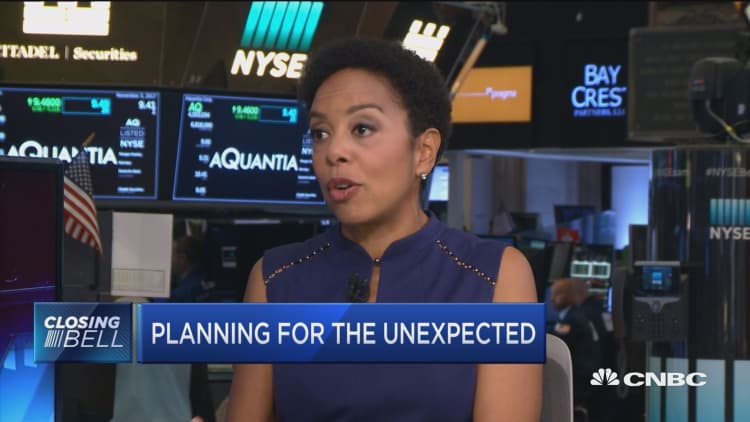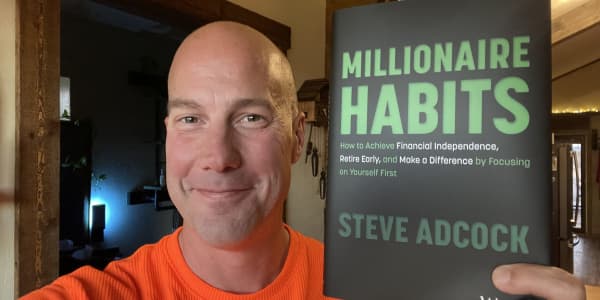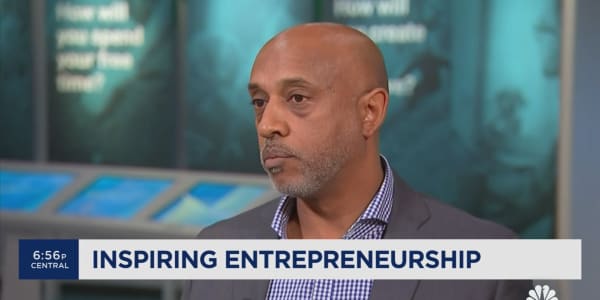Just because your company offers you a brand-new employee benefit, doesn't mean that you have to take it.
October kicks off the beginning of benefits enrollment season for many employees, as they sign up for next year's health care plan and life insurance coverage.
But the list of potential perks — known as voluntary and fringe benefits — goes beyond the core suite of life and health insurance coverage and 401(k) plans.
A June survey by the National Business Group on Health found that about 9 out of 10 large employers offered accidental death and dismemberment insurance.
See below for a range of different workplace benefits.
"There is no shortage of benefits that employers offer which you can take advantage of, so it can be very overwhelming to figure out what you need in a given year," said Ellen Kelsay, chief strategy officer at the National Business Group on Health.
You 'll likely pay more for selecting those additional benefits, so choose carefully.
Extra life insurance
Group life insurance is a staple of many benefits plans. Nearly all of the 68 companies participating in the National Business Group on Health's survey said they offered it.
Should you boost your coverage beyond the basic offering? Financial advisors say it depends.
"I don't go after group life insurance much unless you're unhealthy," said Darin Shebesta, a certified financial planner and vice president of Jackson/Roskelley Wealth Advisors in Scottsdale, Arizona.
One of the biggest benefits to electing life insurance at work is that there is little to no medical underwriting.
The amount your employer pays to provide you with up to $50,000 of group term life insurance coverage is excluded from your income.
Long term disability coverage is something to look at seriously, and making sure that it's 'own occupation.'Kaleb Paddockcertified financial planner, founder of Ten Talents Financial Planning
Should you opt to boost your coverage by purchasing supplemental life insurance at work, expect to pay for it and go through additional underwriting.
In that case, take a close look at how much you're paying for that extra coverage and the amount of death benefit it will provide.
It's possible that you could find cheaper 20- or 30-year term coverage with better death benefits outside of your plan, said Shebesta.
If you leave your employer, your workplace life insurance coverage generally doesn't travel with you. This may be another reason to buy term insurance outside of work.
Disability insurance
Aside from an untimely death, the other major threat to your income is disability.
Your employer may offer you short -or long-term disability insurance, a policy that will pay up to 60 percent of your salary in the event you're unable to work for a period of time.
Get to know the terms of the coverage that's available.
First, find out whether your coverage at work is for "own occupation" — meaning that it will pay if you are unable to perform the duties of your specific job — or "any occupation" — in which you'll receive benefits if you're unable to perform any job.
"Own occupation" is the more generous of the two.

You may need to wait a period of 90 days to six months before you become eligible for long-term disability benefits.
If your employer offers you short-term disability benefits, you may be able to use them to get you through this waiting period.
However, if you have an emergency fund that's more than adequate, it can go a long way toward floating you through the elimination period.
"My approach is to build a foundation of financial planning, where you have an emergency fund set aside for something like a short-term disability, rather than buying it on the private market or at work," said Kaleb Paddock, a CFP and founder of Ten Talents Financial Planning in Parker, Colorado.
"Long term disability coverage is something to look at seriously, and making sure that it's 'own occupation,'" he said.
Think twice
If your employer offers the full suite of employee benefits, financial advisors suggest rethinking accidental death and dismemberment coverage, as well as some of the more esoteric plans for critical illness and cancer.
"I'm not a fan of supplemental plans for critical illness and cancer insurance," Shebesta said. "For what you're paying versus what you're getting, they aren't as impactful as long-term disability."
Accidental death and dismemberment, or AD&D in industry parlance, shares some overlap with life insurance and disability. You get a payout in the event of death or a catastrophic injury in a severe accident.
But this coverage tends to be much more narrowly defined compared to life insurance. It might pay if you die in an accident, but it won't pay if you die of an illness.
Similarly, cancer insurance pays in the event you're diagnosed with the disease, but it's no substitute for comprehensive health insurance.
"People have so many priorities, they need to optimize their dollars elsewhere," Shebesta said.
More from Personal Finance
Two-thirds of employees dream about this every second of every day
You can save a lot of money on health insurance, but should you?
Do this to strengthen your retirement savings in 2019






